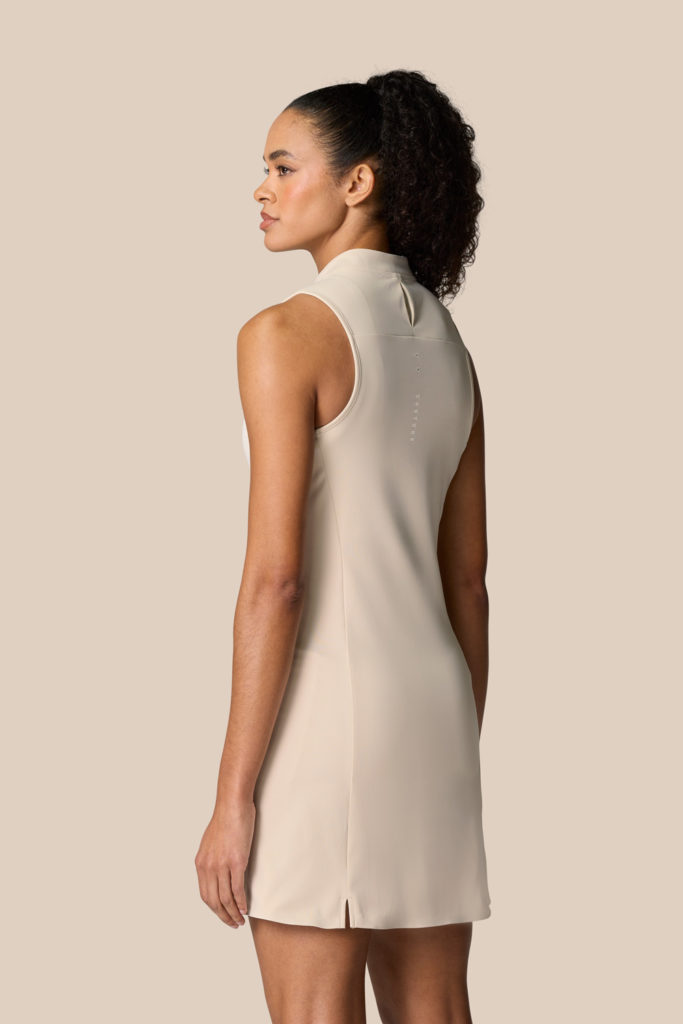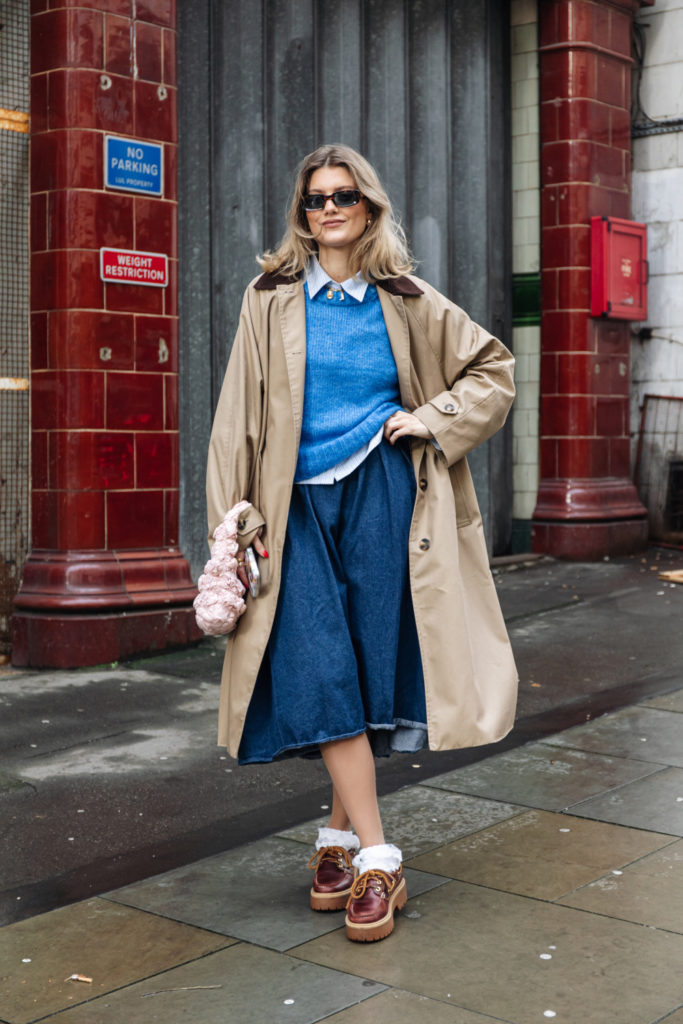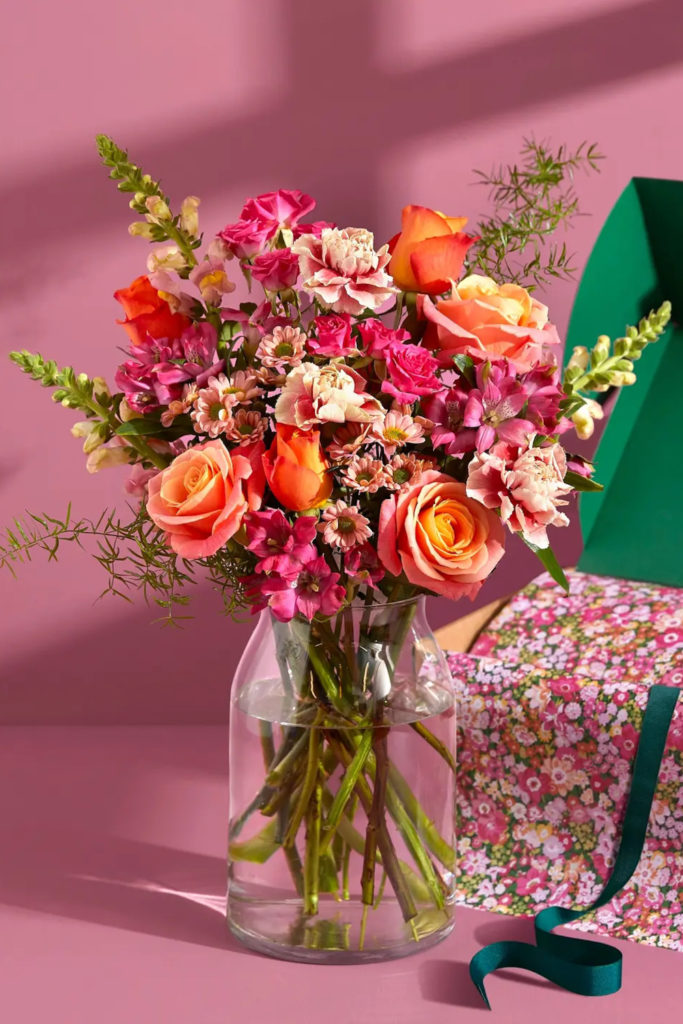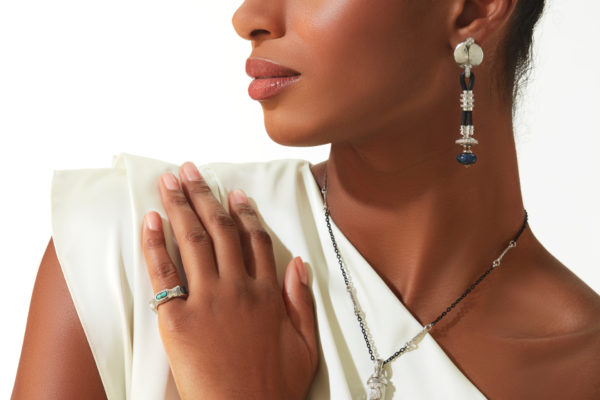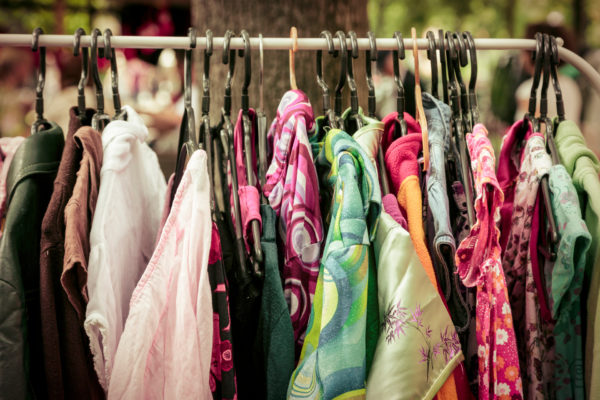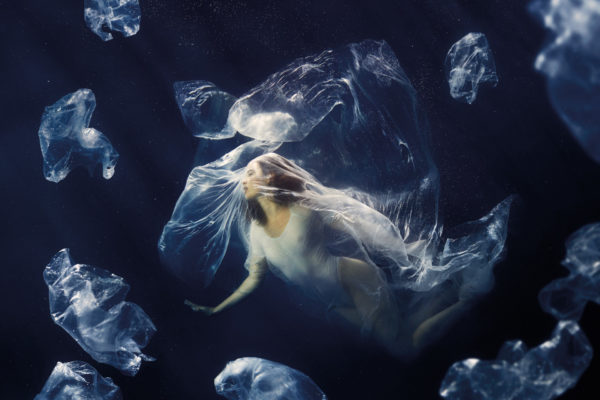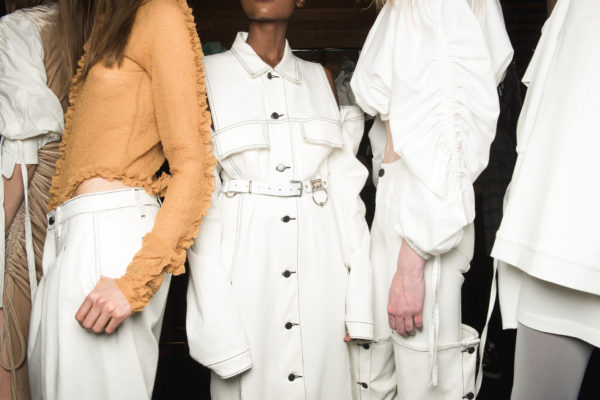40 Ethical & Sustainable Fashion Brands to Discover Now
By CTH Editors
1 year ago
These are the brands and designers leading the way in sustainable fashion

(c) Stella McCartney
Start shopping more consciously with our pick of the best sustainable fashion brands and collaborations. One step at a time, these brands might not be perfect, but they’re making moves for the better.
The fashion industry is one of the most polluting industries in the world. But, it’s also one that is swiftly transforming.
Stella McCartney told us: ‘We have to stop and consider the waste, it’s spiralled out of control. I think in order to have sustainability in fashion, you need to think in advance. You need to think about everything in a circular way and in its entirety and at the end of the day a lot of it is about waste, you know, ‘Waste not, want not, do unto the planet as you would have them do unto you.”‘
From SKIIM Paris to Sonia Carrasco, there are plenty of slow-fashion brands worth shouting about: labels that understand that quality clothing should be forever kept and recycled, upcycled, or passed onto others via charity shops or re-selling websites. As part of our commitment to reducing our carbon footprint and encouraging you to do the same, we’ve researched and rounded up the best sustainable fashion, footwear and accessory brands to support, who ensure they are being as sustainable as possible.
The Country & Town House Responsible Buyers’ Guide
Ethical & Sustainable Fashion Brands to Discover Now
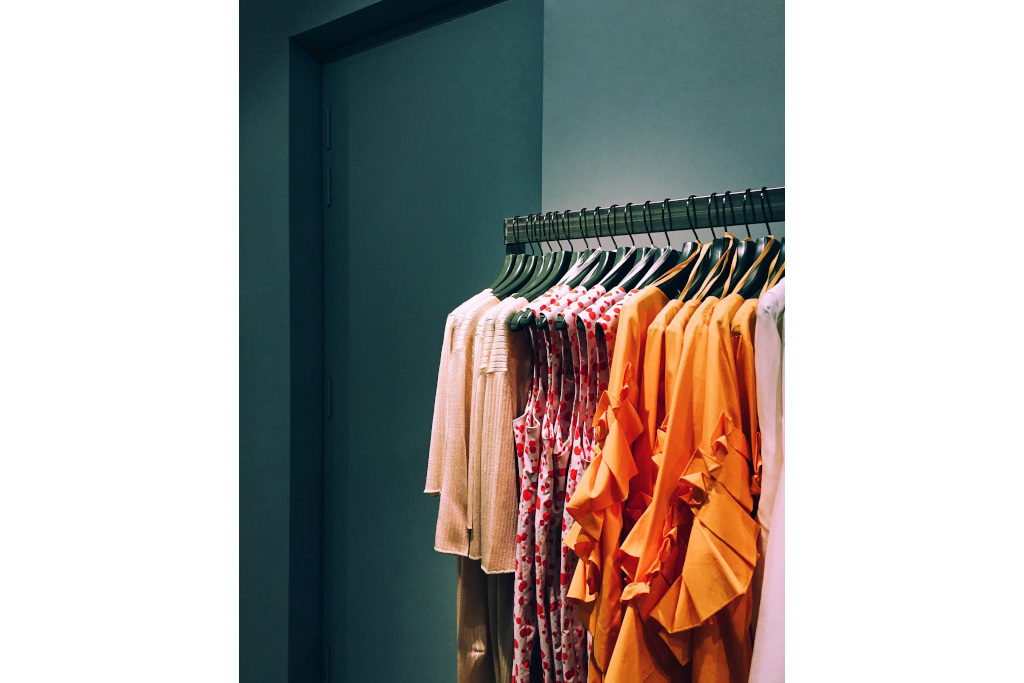
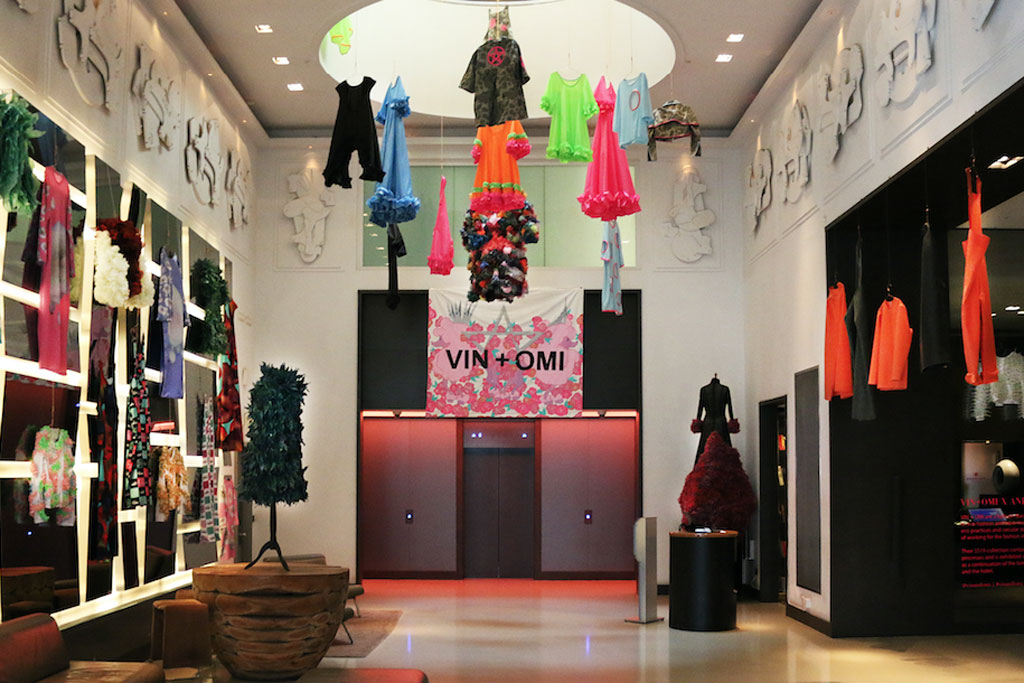
Vin + Omi
Eco-conscious design duo Vin + Omi have been practising and developing eco-innovation since 2004. The brand’s process of producing rPET textiles starts with collecting plastic from clean-up sights, and its production process uses more than 50 per cent less energy than with PET fabrics.
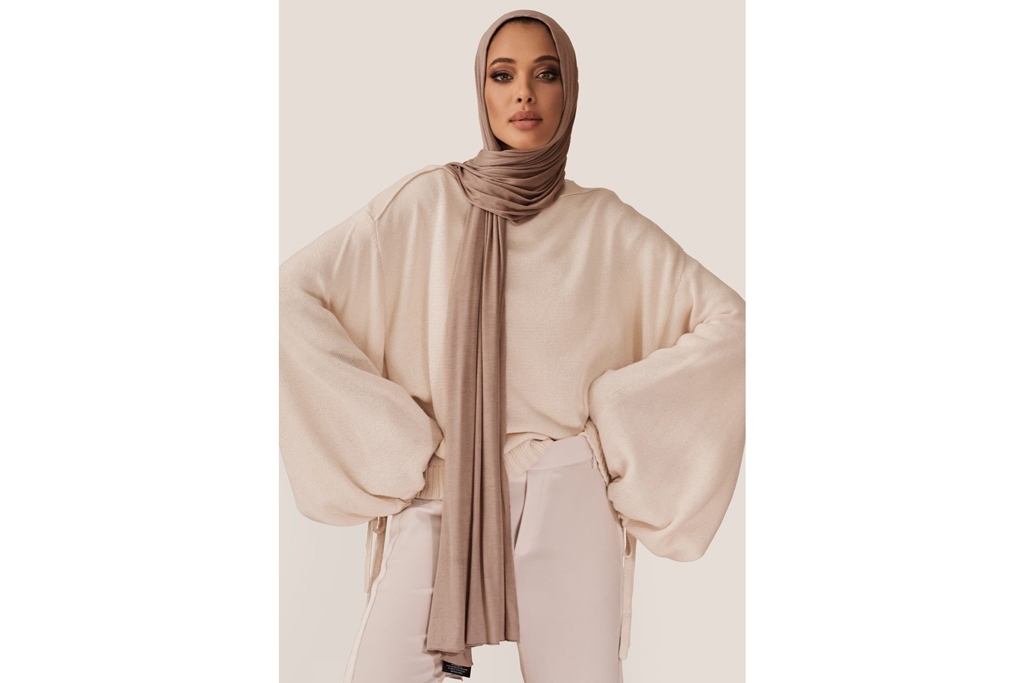
Haute Hijab
Haute Hijab is a brand which has thought about every step of its production and selling process to make it as ethical and sustainable as possible, and it’s clear its an issue that’s important to them. Each hijab is made from deadstock materials which are tested to make sure they’ll last a long time. The pieces are then made by manufacturers with whom Haute Hijab are in contractual agreement, guaranteeing each employee involved gets paid fairly. Once a product is sold, it is packaged in polybags made of biodegradable, recyclable plastic.
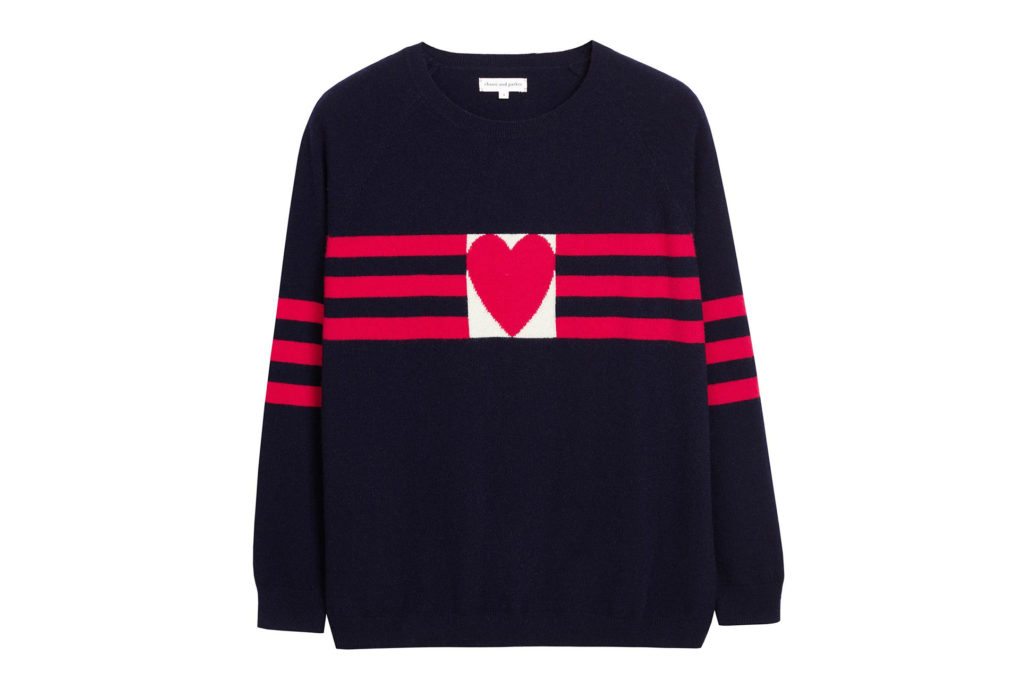 Chinti & Parker
Chinti & ParkerChinti & Parker
Chinti & Parker, renowned for its ‘quality basics’, started in 2009 as a joint venture between cousins Anna Singh and Rachael Wood. They began with ethical cashmere clothing for children, soon venturing into womenswear, creating simple and versatile pieces. The brand is committed to sustainability and better living, justifying the cost of the products with the ethical process behind them. For example, each of the Chinti & Parker factories is handpicked for its relevant expertise and high-quality credentials. What’s more, in places where production involves long travel, Chinti & Parker actively offsets carbon emissions as outlined by the Carbon Neutral Company. Gwyneth Paltrow even designed a jumper to champion the brand’s approach to ethics and sustainability.
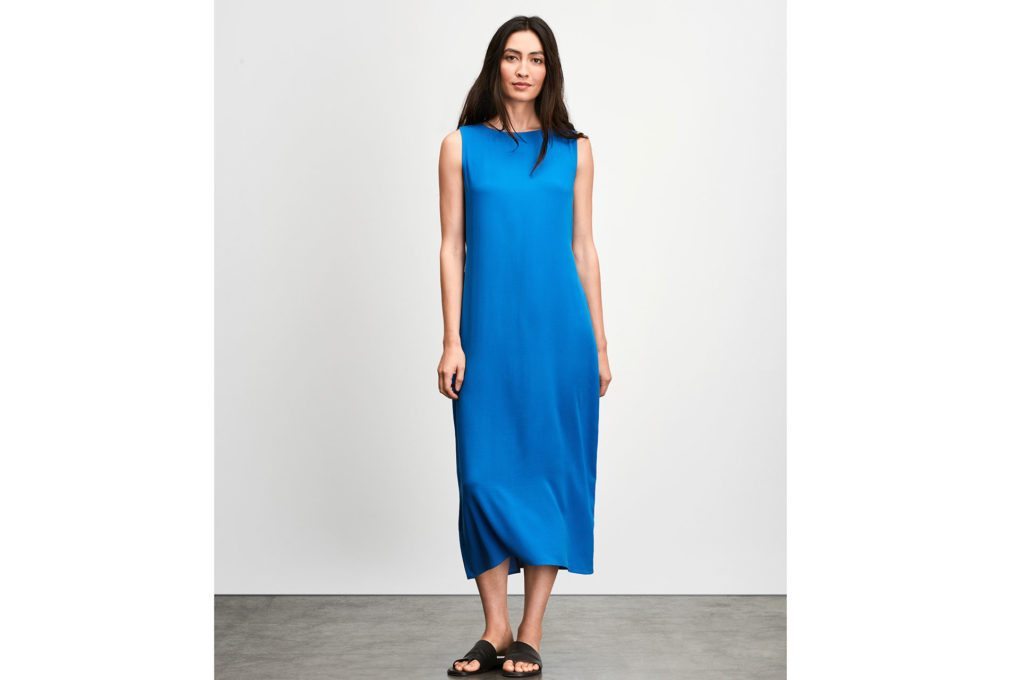
Eileen Fisher
Ethics and sustainability are quite literally woven into US fashion label Eileen Fisher’s minimalist fashion offering. The brand publicly shared its commitments in its 2020 vision that looks at improving the social and environmental impacts of the supply chain. Its initiative, Green Eileen, has seen the fashion label collect and recycle previously worn Eileen Fisher clothing, supporting women, girls and the environment. What’s more, the brand offers free repairs on all its clothing.
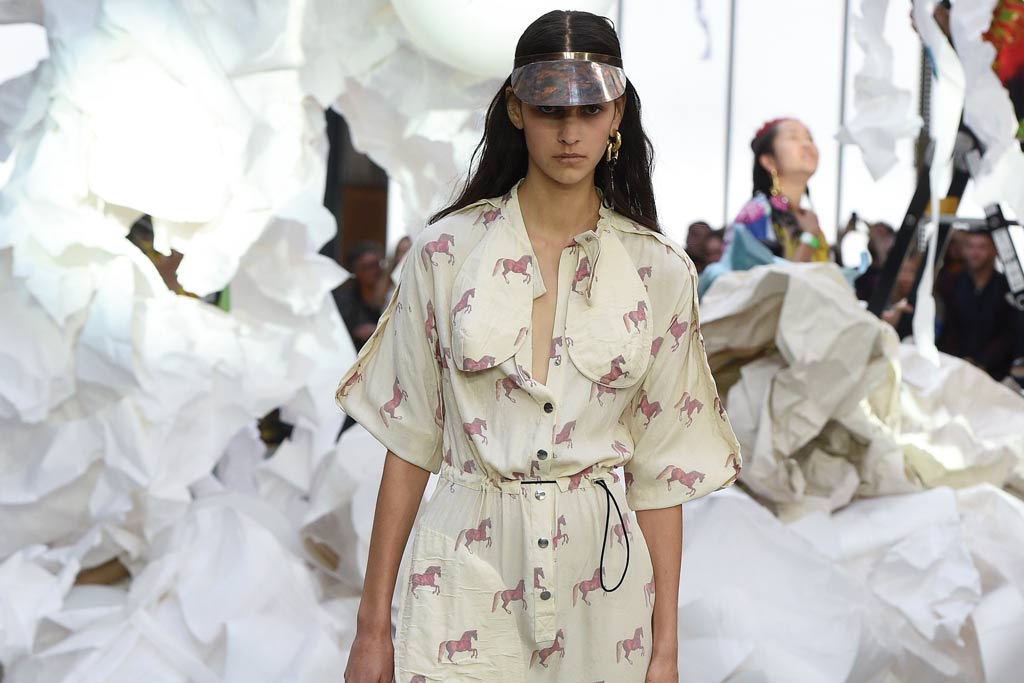
Vivienne Westwood
Vivienne Westwood uses her collections and catwalk shows as a platform for positive activism. Her resilient campaigning on climate change and overconsumption has underpinned the brand’s identity, as has her ecological crusades. The luxury brand is a Trustee of human rights organisation Liberty, a Patron of Reprieve and a campaigner for Amnesty International. Her green campaign support includes Cool Earth in its efforts to save rainforests and stop climate change. In collaboration with the UN’s Ethical Fashion Initiative she began producing bags in 2015 supporting thousands of women from marginalised African communities. The collections are created using recycled materials from slums and landfill and the income helps to stop the need to continue deforestation in the area.
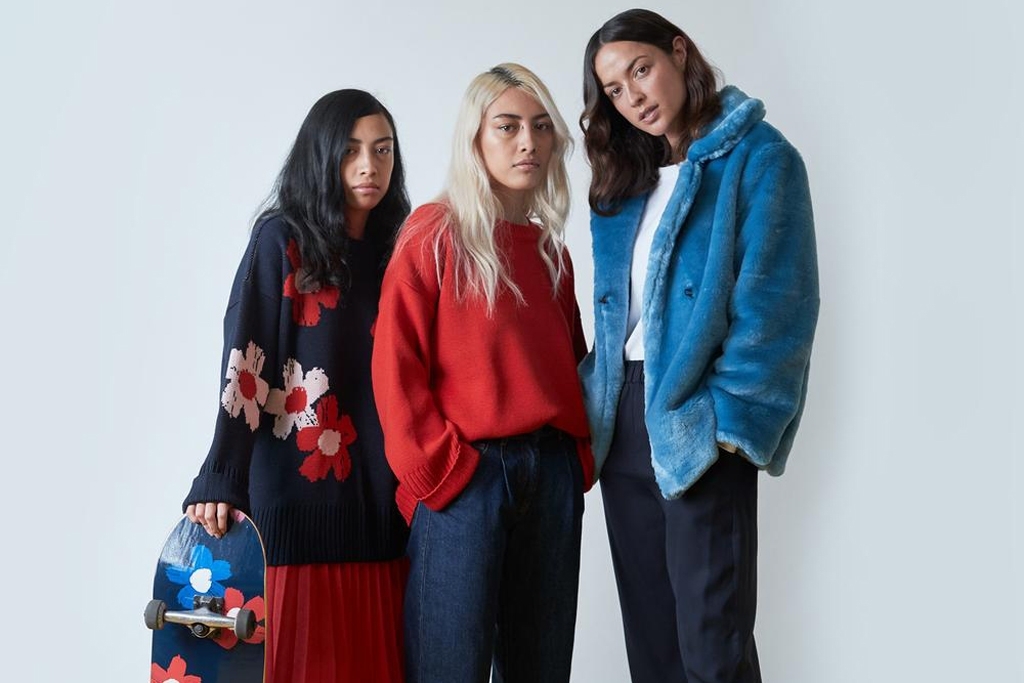 Twenty-Seven Names
Twenty-Seven NamesTwenty-Seven Names
New Zealand-based brand Twenty-Seven Names offers fashionable sustainability at its finest. Created by Rachel Easting and Anjali Burnett, and named after the 27 people who helped to get the business off the ground, the brand opts for entirely ethical fabrics and methods of creation. On each garment’s page, you’ll find a full disclosure of where the piece was cut and made, and the provenance of the lining, trims and fabrics.

Tretorn
If you’re on the hunt for a sustainable jacket suitable for unruly weather conditions, buy one from Tretorn. The brand’s initial goal was to be able to ‘label 50 per cent of our outerwear with the Eco Essentials initiative before the year of 2020’. Having already achieved this, Tretorn now boasts that 85 per cent of its outerwear is part of the Eco Essentials Initiative, in which products included are made from recycled materials such as plastic bottles.
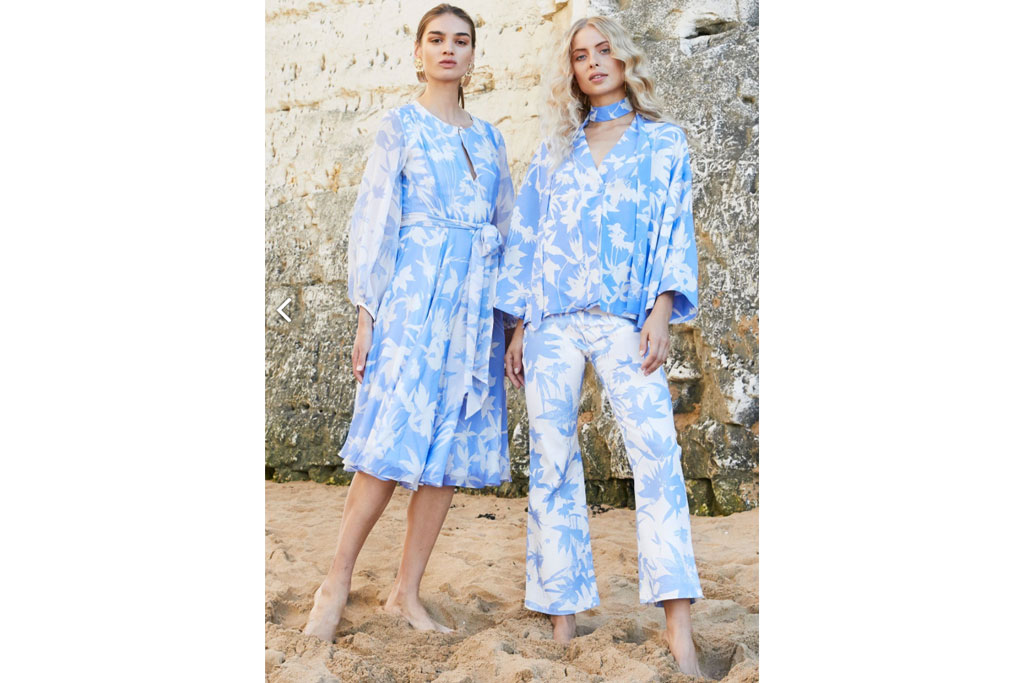 Beulah Spring Summer 19 Collection
Beulah Spring Summer 19 CollectionBeulah
Beulah is a sustainable fashion brand excelling in floaty dresses and skirts, and is on a mission to eradicate slavery ‘through the power of skilled craft, exemplary business ethics and conscious consumption’. Its supply chain prides itself on transparency, employing women who have overcome sex trafficking and slavery with the hopes of giving them and their families a better future. They are also sustainable in the sense that their garments are high quality, to decrease the number of clothes thrown away and end up clogging up landfills. One material used frequently in their collections is silk which is sourced from China and then hand-printed either in India or digitally printed in Italy. They explain on their website that ‘currently there are not many viable higher-welfare alternatives to traditional silk; options like peace silk are still relatively unfeasible in terms of quality and quantity’, and assure that the company is always striving to investigate new fabrics and spearhead the latest environmental practices. The use of cashmere and wool in their collections isn’t common, but when they do, it’s through a partnership with a women’s cooperative in Nepal.
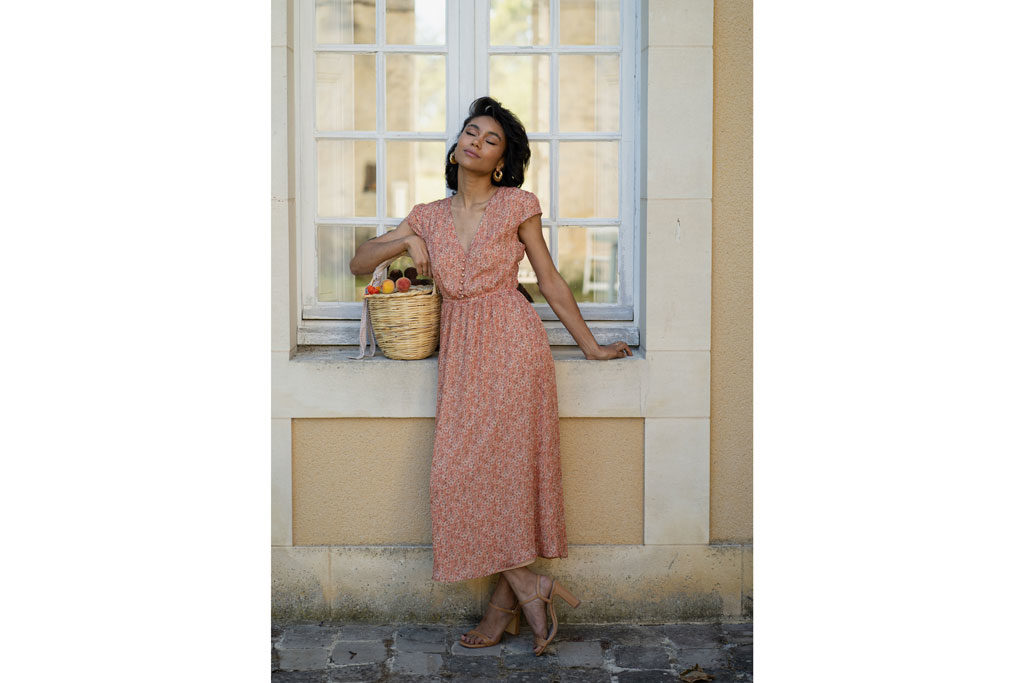
Gaâla
Founded by a French and Belorussian husband and wife duo, Gaâla combines a breezy French sensibility with traditional craftsmanship and whimsical prints. Deadstock luxury fabric is used to produce beautiful, high-quality pieces, including dreamy summer dresses and silk blouses; in a testament to the brand’s focus on sustainable fashion and reducing waste, only a very limited number of items are created at a time.
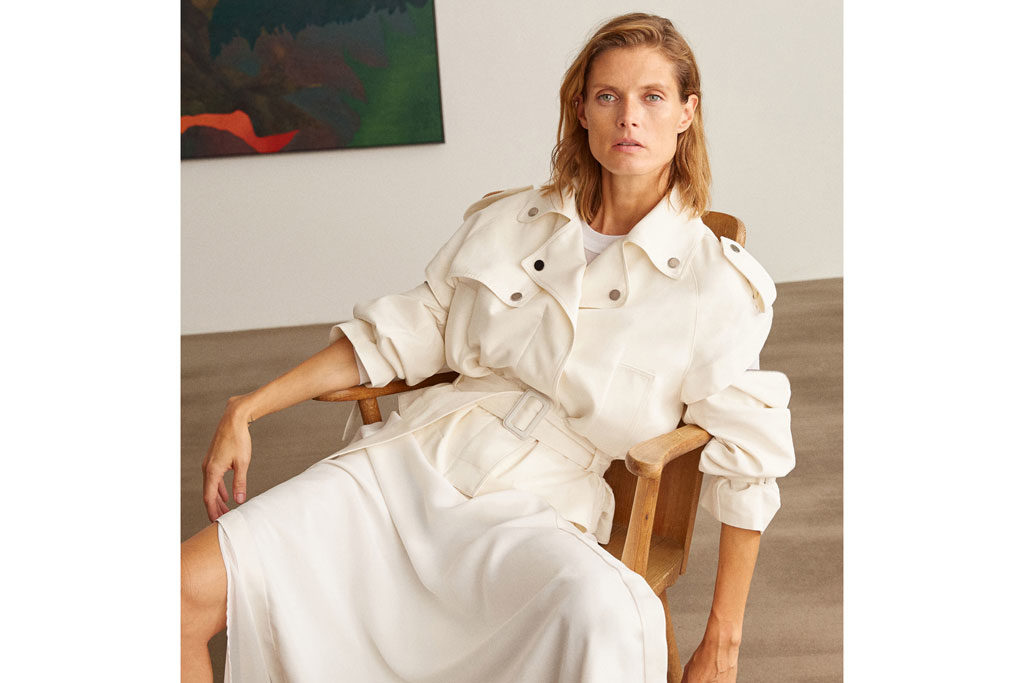
BITE Studios
Sustainability is at the heart of BITE (which stands for By Independent Thinkers for the Environment): 95 per cent of the fabrics used in the brand’s endlessly wearable collections are made from natural organics and recycled or sustainable fibres. The SS20 collection, crafted from organic silk, wool, linen and cotton, took inspiration from surrealist artist Dorothea Tanning’s move to Arizona with her husband Max Ernst, and the colours of her work from that period.
 Beamont Organic
Beamont OrganicBeamont Organic
Beamont Organic, a brand stocked at Young British Designers, was founded with a mission to create ‘contemporary conscious clothing’. The materials they use are fair-trade, organic and eco-friendly, and the styles vary from light floaty linen dresses for summer, to organic cotton hoodies for winter. It’s a responsible, slow-fashion brand that can be trusted to always produce ethically and reduce waste wherever possible, whilst being an easy brand to head to for a quick wardrobe update.
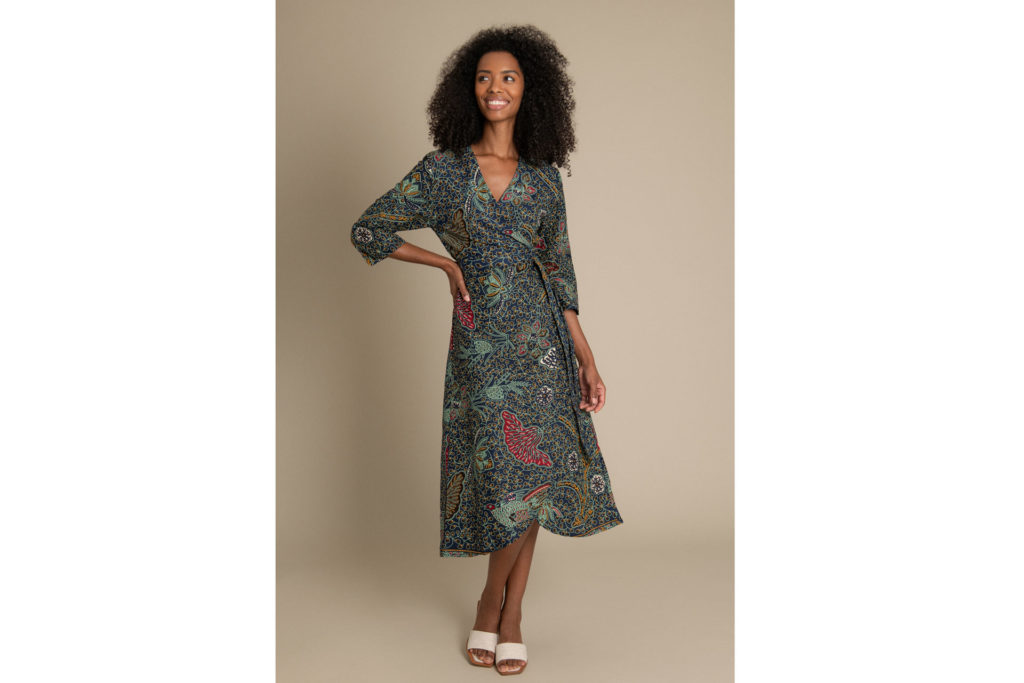
Mayamiko
If it’s good enough for Meghan Markle, then it’s good enough for us. The Duchess of Sussex sported this ethical and sustainable brand whilst on the Royal Australia Tour and it’s easy to see why. Not only does Mayamiko create vibrant, comfortable and zero-waste African-inspired clothing, but every garment is produced in the label’s green energy workshop in Malawi, a space designed in association with The Mayamiko Trust charity which offers support and opportunities to vulnerable women by teaching them creative new skills.
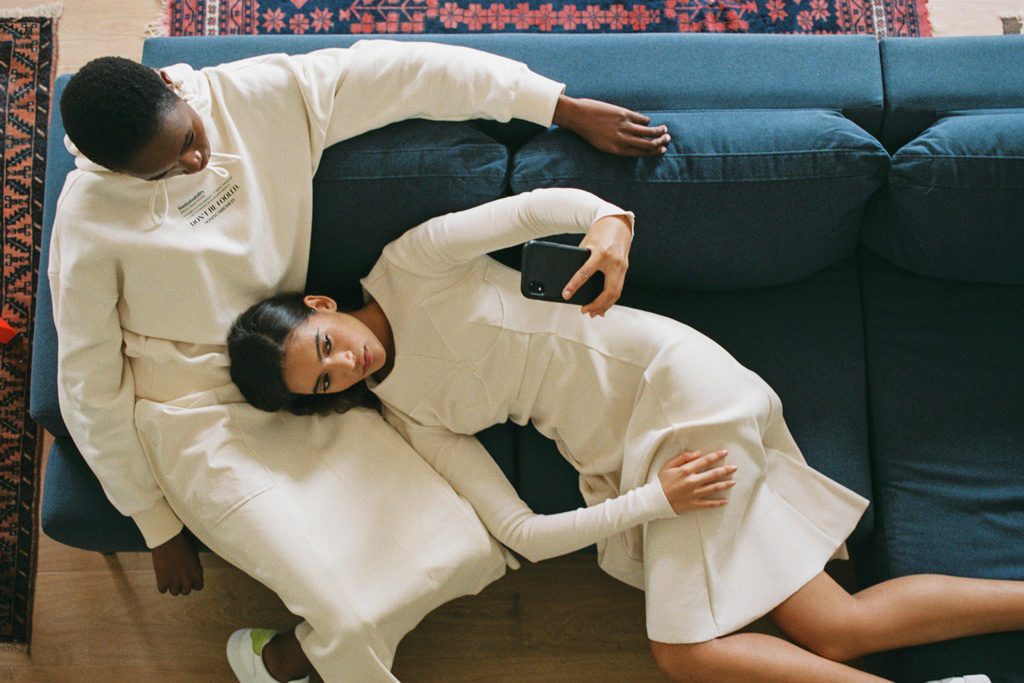
Sonia Carrasco
Committed to crafting environmentally conscious clothing, each of Sonia Carrasco’s garments is created in Barcelona – just 5km from the brand’s studio in fact – and is made with materials certified by the Global Recycled Standard. The womenswear label, whose style is both modern and minimalist, also ensures that its suppliers compliment the brand’s environmental ethics, focusing on the production of high-quality timeless pieces, each to be loved and to last. What’s more, the exemplary label also supports local NGOs to offer women at risk of social sonia-carrasco.com
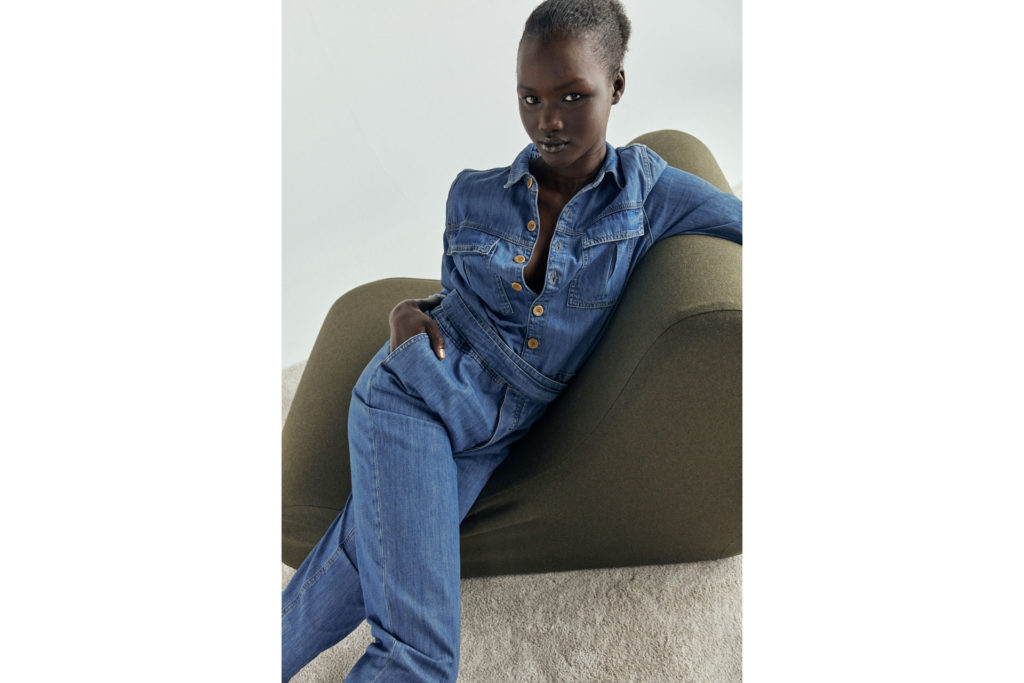
Outland Denim
Denim jeans never go out of fashion, and Outland Denim has ensured they never go to waste either. The brand, which was founded in 2016, has released one of the most sustainable vintage wash-denim jean on the market. The ‘Amy Former’ jean uses less water, energy, chemical and worker impact than the average vintage-wash jeans. Using a combination of natural fibres including organic and recycled cotton, the Amy jean is definitely one for our wish list – releasing less micro-plastics into waterways when laundered while ensuring the fabric stays soft and stylish.
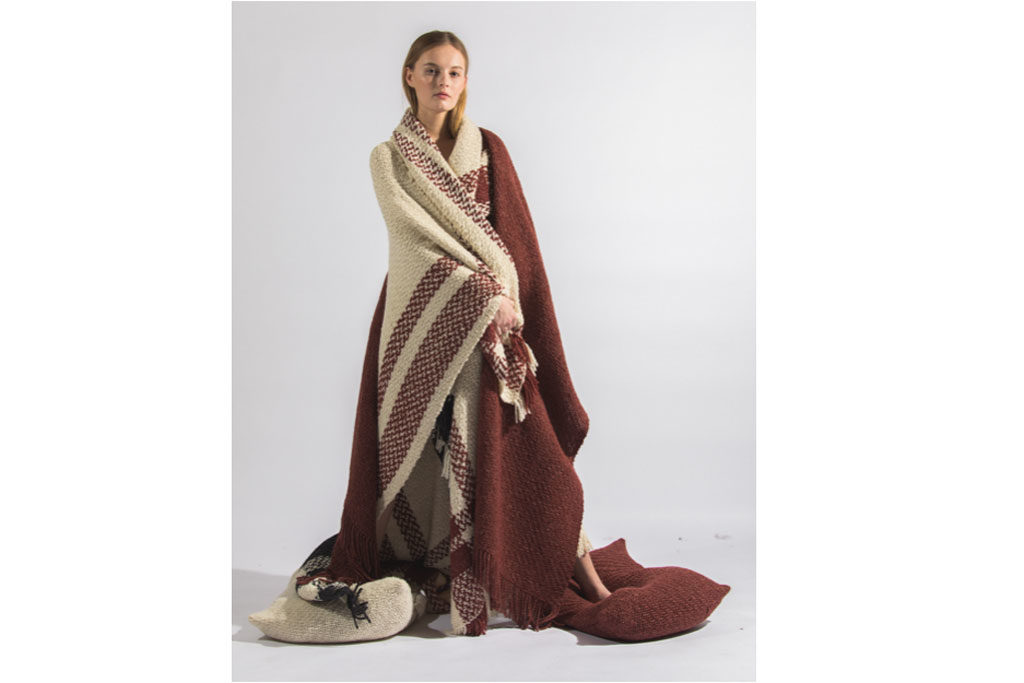
Aessai
Aessai, a brand inspired by a collection of interwoven stories that support the skills of South American artisans, was founded by Argentinian designer Rebecca Kramer in 2017, and focuses on sustainability and ensuring impeccable quality control. The range includes a large selection of hand-loomed blankets, shawls, sweaters and ponchos made from blends of soft and renewable merino wool.
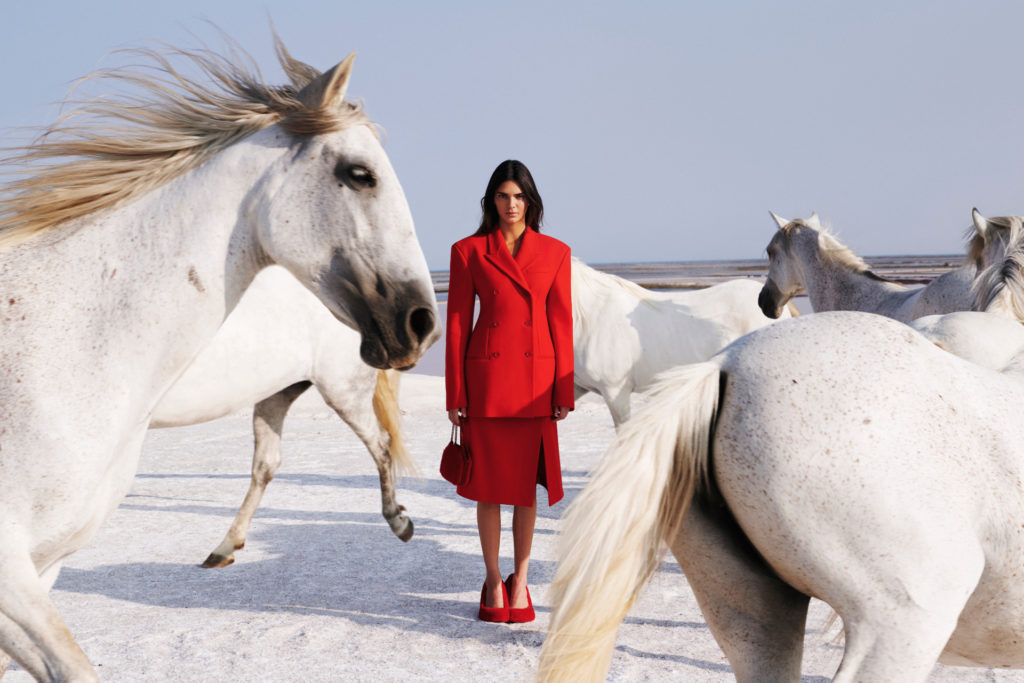 (c) Stella McCartney
(c) Stella McCartneyStella McCartney
Stella McCartney was one of the first luxury fashion brands to advocate environmentally friendly production, still with a chic, understated aesthetic which appeals to the fashion-conscious customer. Partnering with the ethical fashion initiative since 2011, the designer has banned fur and leather in her collections and continues to inspire other fashion brands to embrace a more sustainable business model.
EXPLORE: stellamccartney.com
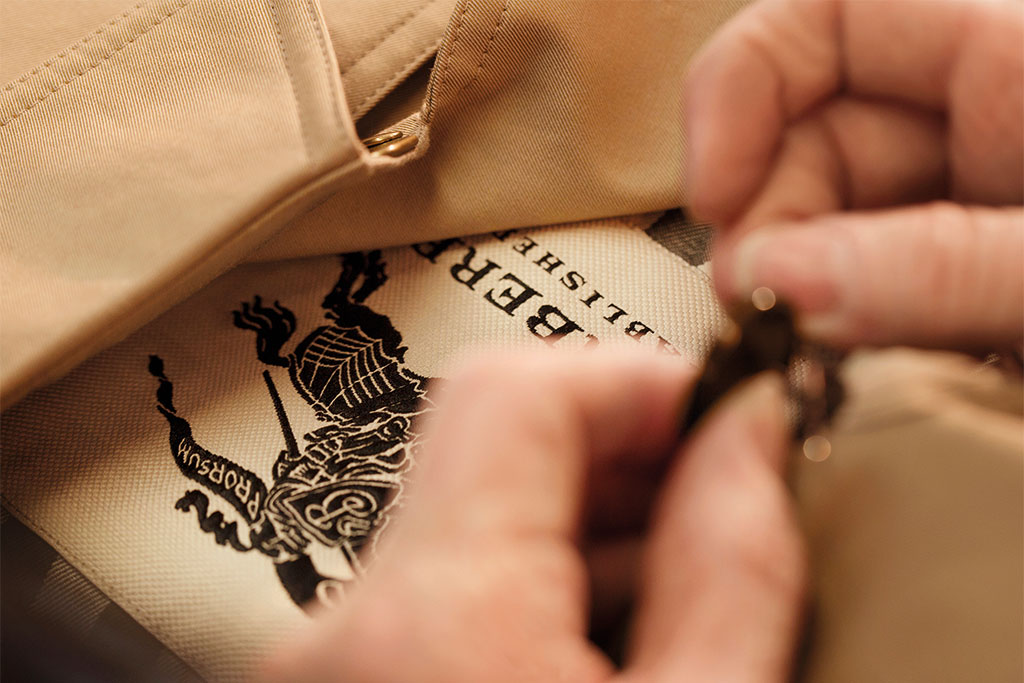
Burberry
One of Britain’s most iconic and influential luxury brands, Burberry has committed to taking a more sustainable approach, namely The ReBurberry Edit – in which the brand relaunched 26 of its Spring/Summer 2020 looks using eco-friendly materials earlier this year – and the introduction of sustainability labels, enabling consumers further transparency over the eco-qualities and materials of the brand’s garments. A recent collaboration with footballer Marcus Rashford (amidst his free school meals campaign) with hopes of inspiring younger generations also affirmed the fashion brand’s ethical and forward-thinking aspirations. What’s more, the fashion house has established a five-year campaign to support the production of sustainable cashmere. The programme, launched in partnership with Oxfam and PUR Projet, aims to transform the landscape of the cashmere industry in Afghanistan – the world’s third largest producer of the fibre – to produce sustainable, quality cashmere and subsequently improve herder’s livelihoods.
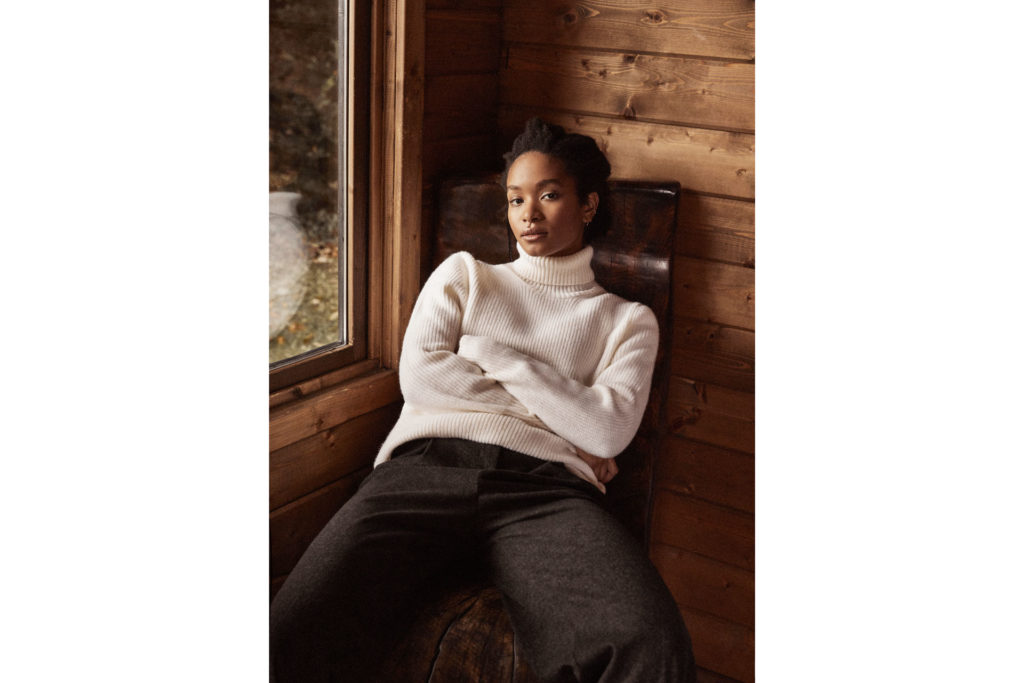
NavyGrey
Creating classic and timeless everyday pieces with luxury sustainable-sourced wool from sheep to shop, NavyGrey is now launching a new ‘traditional’ and ‘heirloom’ knit. The beautiful pieces are 100 per cent soft with superfine lambswool spun in Scotland and manufactured with the best practice and sustainable principles – produced in limited quantities to avoid excess waste and ensure quality control. Any yarn which is not used is recycled by the factory and all products that are shipped to customers are done so through a globally reusable, returnable, and waste-free packaging service.
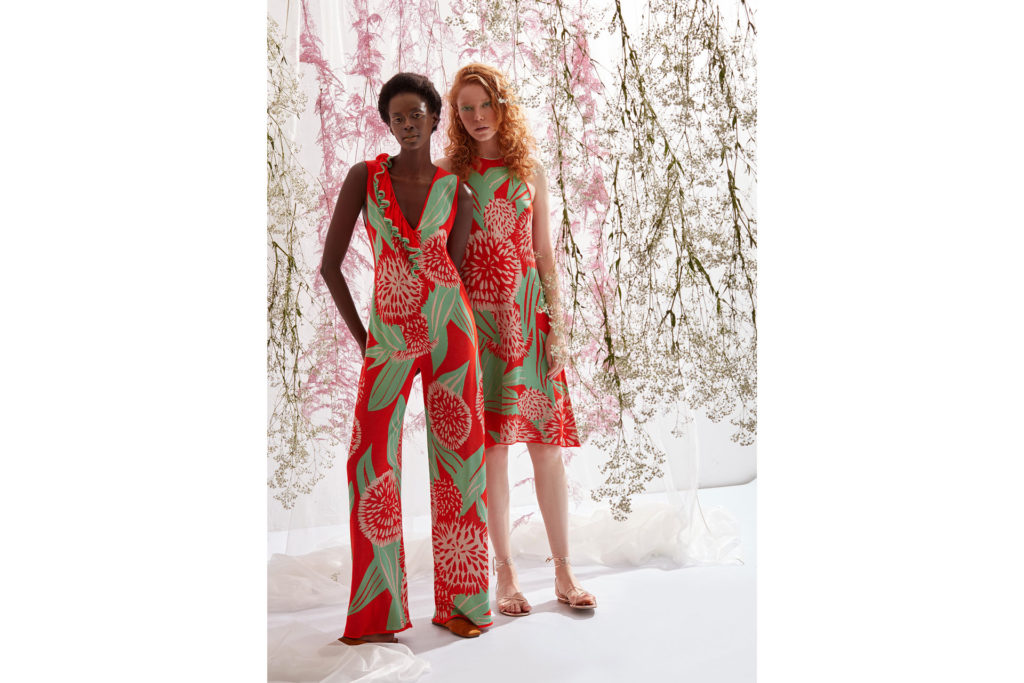
KNITSS
Women’s contemporary knitwear brand KNITSS has previously created collections using 100 percent GOTS certified cotton and sustainable productions. KNITSS also emphasizes the importance of recycling and protection of the environment, evident with their new clothing line.
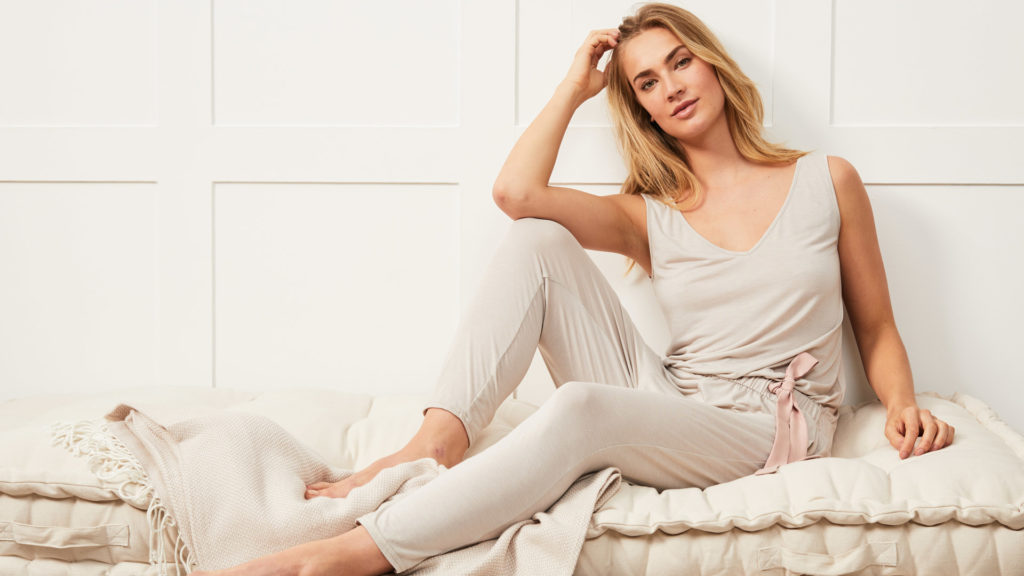
Cucumber Clothing
Friends since school, co-founders Eileen Willett and Nancy Zeffman have created a sumptuous, yet sustainable brand which caters to the everyday woman. Comfort and ease is key when it comes to Cucumber Clothing, but so too are the label’s ethics and environmental impact. The brand champions local sourcing, sampling and manufacturing, uses minimal and sustainable packaging (no plastic in sight), and creates ‘seasonless style’ designed to last – to say the very least.

KALITA
Sustainable womenswear label KALITA specialises in timeless organic silk, cotton and linen dresses, sold on global retailers like Net-a-Porter as well as on its own e-commerce site. The company was founded by designer Kalita Al Swaidi, who is constantly searching for new ways to make fashion more sustainable. At KALITA, for instance, all garments are hand-dyed using low impact dyes with higher absorption rates to avoid the pollution of natural waterways and local ecosystems. And, in a bid to reduce waste, all products come in reusable muslin bags instead of in plastic packaging. The company has a clear social conscience too, having supported philanthropic causes such as the Blue Marine Foundation, as well as Community Christmas which aids people with no funds to enjoy a Christmas meal.
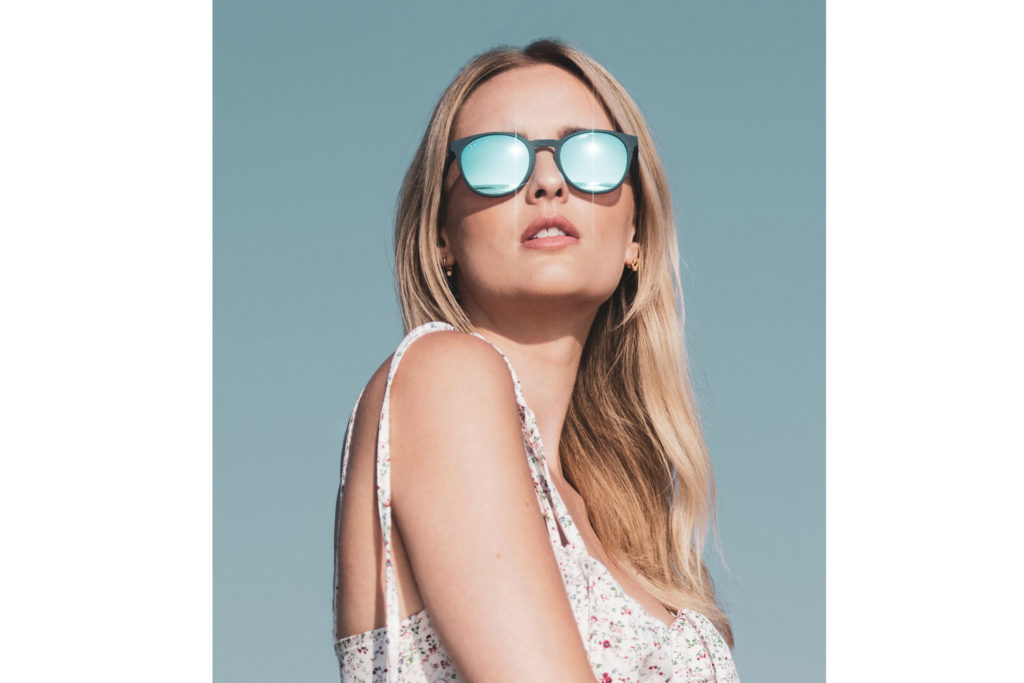
Coral Eyewear
Coral Eyewear is a planet positive eyewear brand created from ocean waste. With many of the nine million pairs of glasses and sunglasses sold in the UK each year using virgin plastic and causing immeasurable harm to animals, the brand uses ECONYL in an attempt to change the impact of environmental waste and improve animal welfare. The ECONYL process reduces the global warming impact of industry-standard by up to ninety percent, with covetable sunglasses and glasses created by Coral Eyewear from pellets of recycled nylon produced from regenerated ocean fishing nets and fabric scraps from landfill. The frames are also tumbled for smoothness, rather than using lacquer, gloss or varnish that is harmful to the environment.
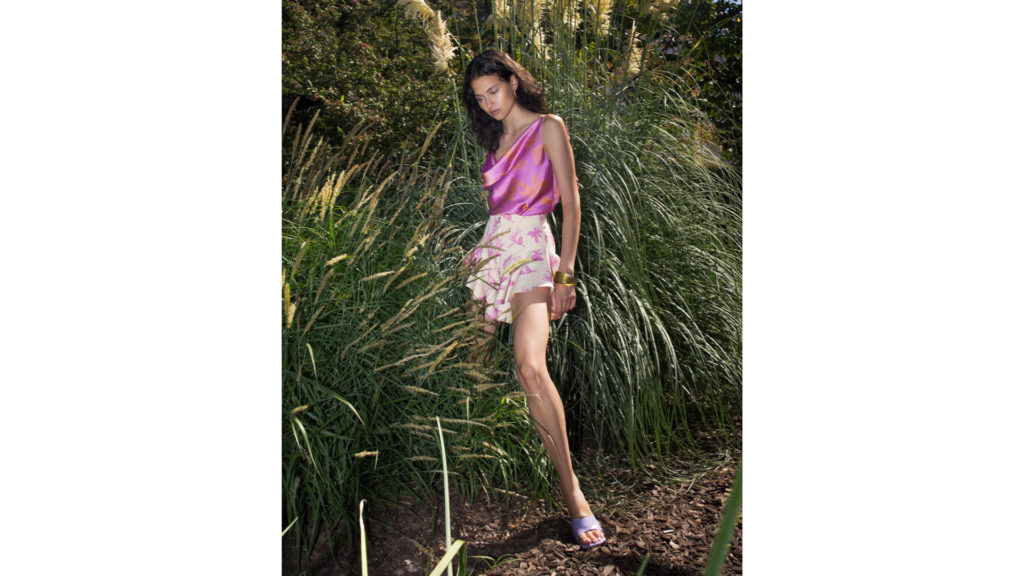
Bogdar
This Bulgarian brand is serious about employing sustainably sourced materials, from GOTS (Global Organic Textile Standard) certified organic cotton to recycled fibres and environmentally friendly faux leather. The label is committed to working solely with socially responsible fabric suppliers, uses eco-friendly packaging, recycled clothing labels and even encourages slow fashion by producing just two stand out collections each year.
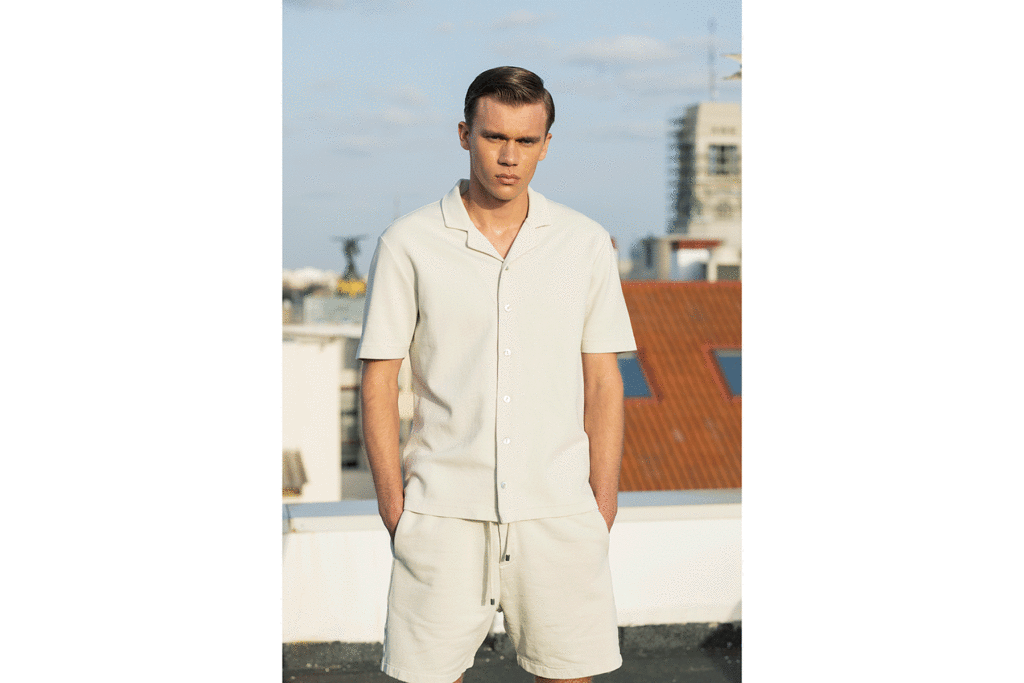
Unfeigned
Male brands are traditionally less concerned with sustainability than female ones – but trailblazing Spanish brand Unfeigned has set out to change that. Made of certified organic cotton and 100 per cent recycled fabrics, the label’s athleisure-style garments combine timeless Spanish tailoring with functional fashion. One of the first male brands to obtain two environmentally friendly textile certificates (the Global Organic Textile Standard and Global Recycled Standard), Unfeigned’s commitment to sustainability is refreshing to see.

SKIIM Paris
Sustainably sourced leather is at the heart of this Parisian brand. Most of the leathers are dyed via vegetable tanning, a more sustainable and chemical free process, and one which also results in longer-lasting clothes. The latest safari inspired collection (featuring soft leather skirts in cornflower blue, summer shirting made from organic cottons and linen city shorts) can be perused at the brand’s reopened Notting Hill pop up. Meanwhile, model, climate activist and C&TH cover girl Arizona Muse has been appointed as the brand’s Sustainability Consultant to ensure every aspect of the business is as eco-conscious as possible.
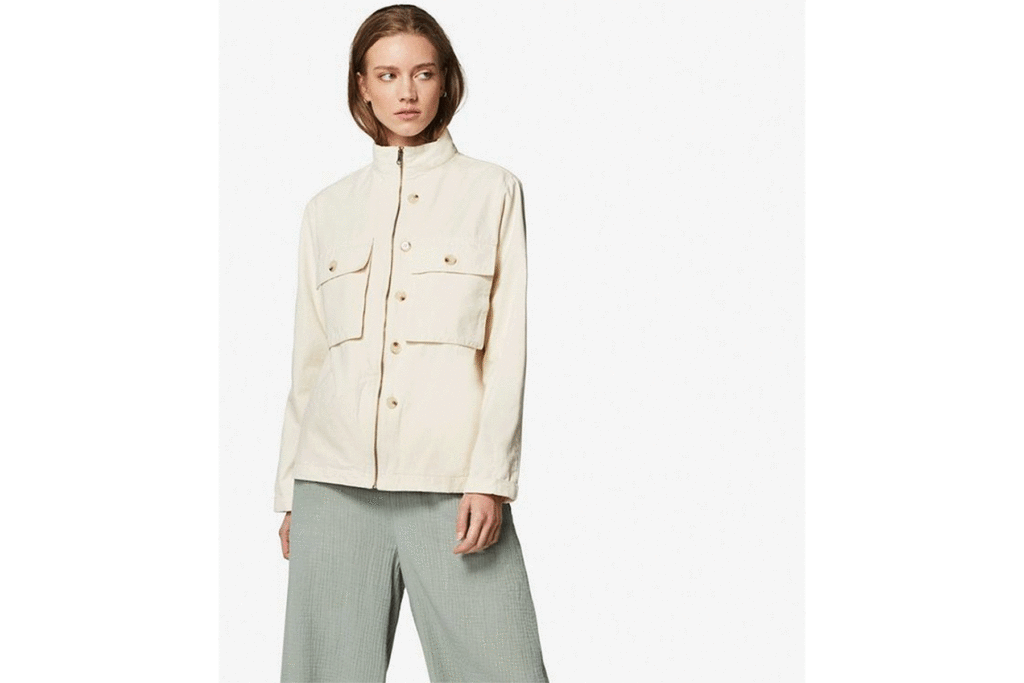
IBEN
This sustainable Scandinavian brand makes conscious choices right at the beginning of its design process, selecting materials and factories that will result in the smallest end footprint. With the belief that women make women stronger, creative director Ann-Marthe Storheil launched the brand to supply self-made women with a wardrobe that communicates their inner style, while protecting women throughout the production process. Garments ooze effortless Scandi cool and are made of Better Cotton Initiative approved fabrics that justify the price tag.
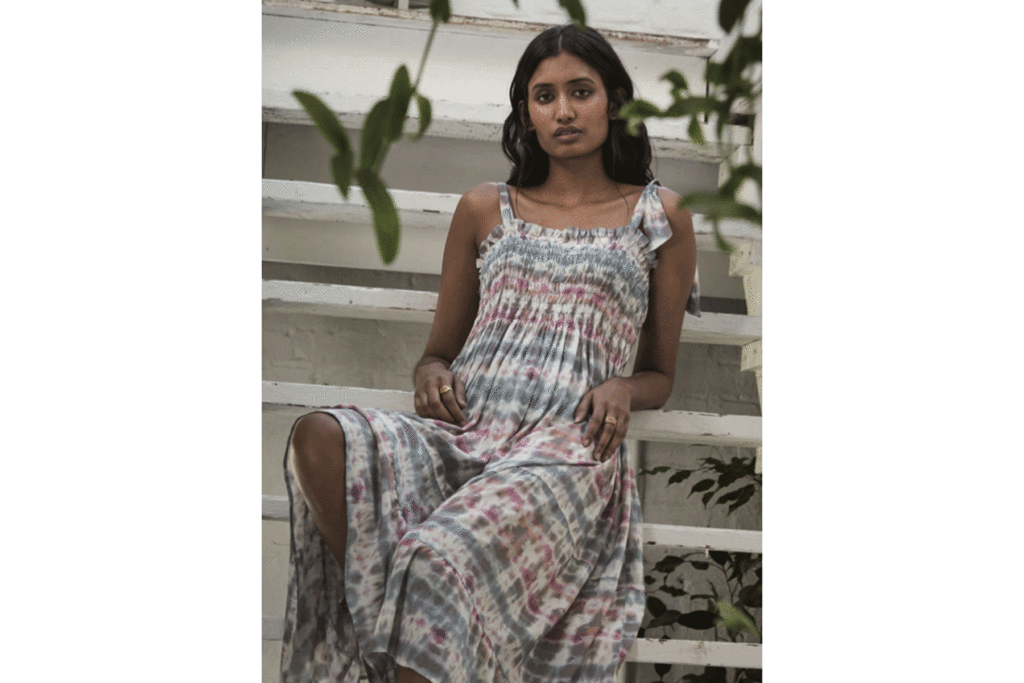
Baukjen
‘Designed for good’ is House of Baukjen’s mantra, and the brand don’t fall short. From being carbon net-neutral to only working with factories that meet the highest ethical standards, this label is committed to disrupting the fast fashion model. The brand’s circular model includes re-commerce initiatives like rental, subscription and care and repair, while its B Corp certification is a trust mark of its conscious business plan.
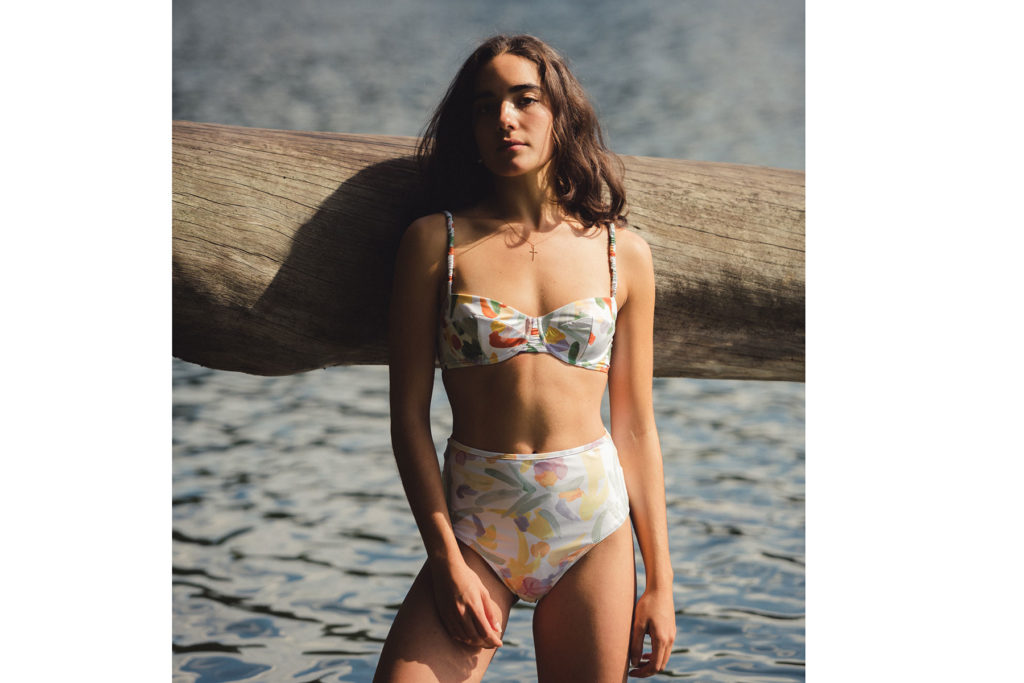
Belize
Belize is making efforts to become more sustainable; many of its garments are made using Khadi, which is a 100 per cent eco-friendly fabric. Using Khadi reduces the brands’ carbon footprint by 30 percent, and means that the garment is biodegradable, so it won’t sit in landfills forever.
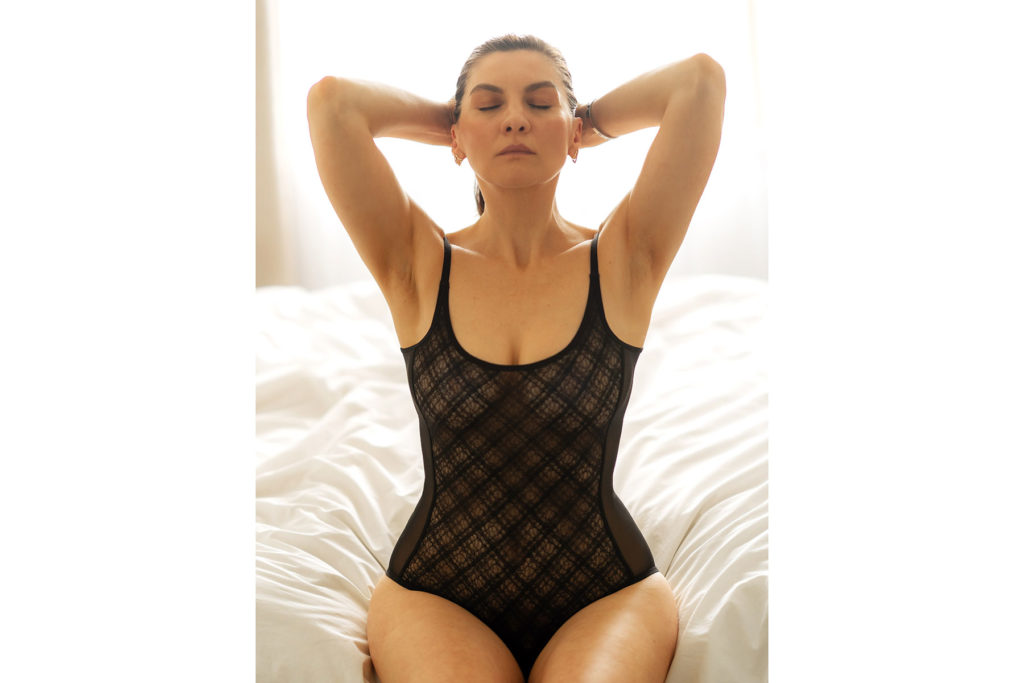
Heist
British brand Heist is on a mission to make sustainability sexy. Renowned for their supportive, silhouette enhancing designs, their latest Eco Lace Collection marks a big step on their journey to reducing waste. All underwear is designed from 100% recycled – and recyclable – lace and sheer eco mesh.
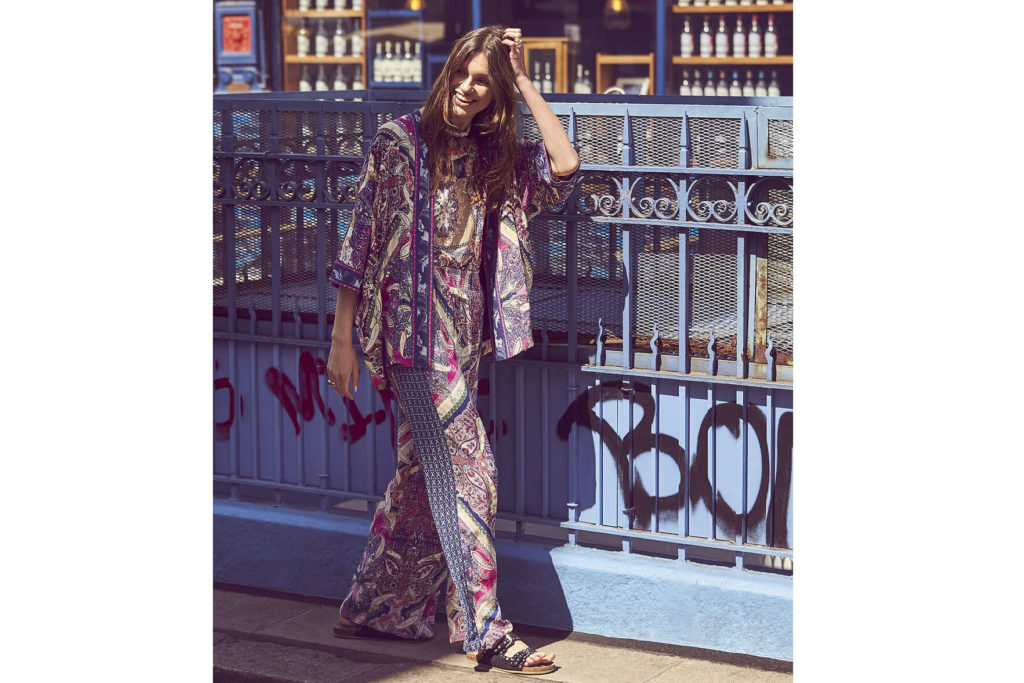
Monsoon
Since it was founded in the 1970s, Monsoon has worked with craftspeople in villages and small communities across the globe to create their trademark bohemian clothes. Their Artisan Studio range is 100 percent sustainable, as is all their beachwear, meaning you can marry ethical shopping with sustainable shopping – and look fabulous to boot.
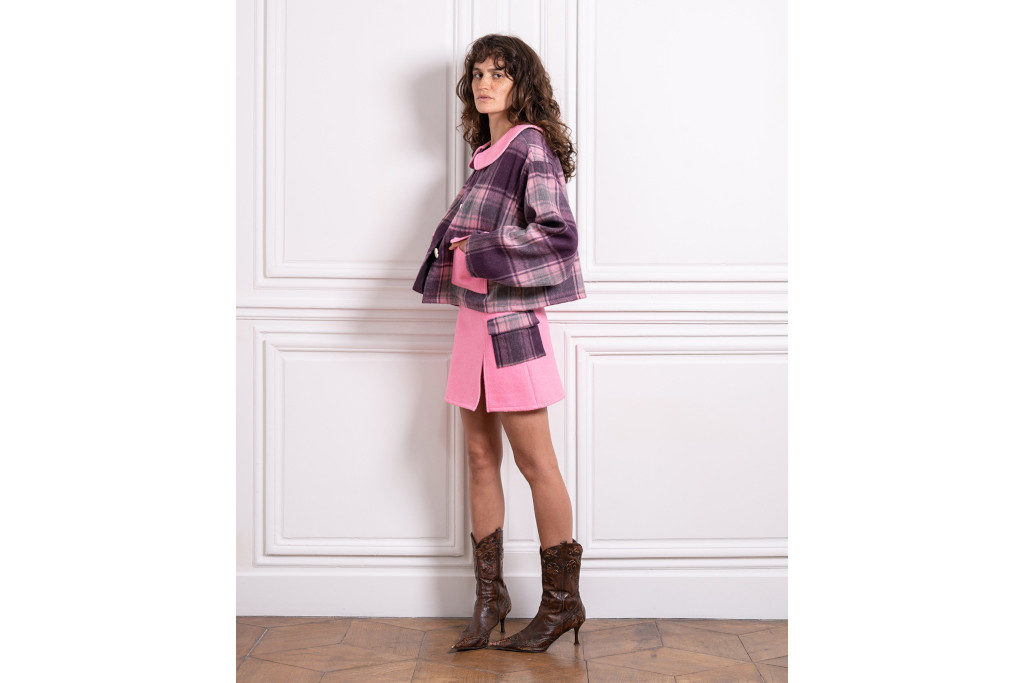
MaisonCléo
Headed by a mother-daughter duo, MaisonCléo is the fashion label committed to using only leftovers fabrics from French Couture Houses and factories. While avoiding trends and collections, the brand creates pieces that are handmade to order and created in limited runs using natural fabrics. MaisonCléo also opts for full transparency, meaning you can discover everything from fabric costs to how much time was spent making each garment.
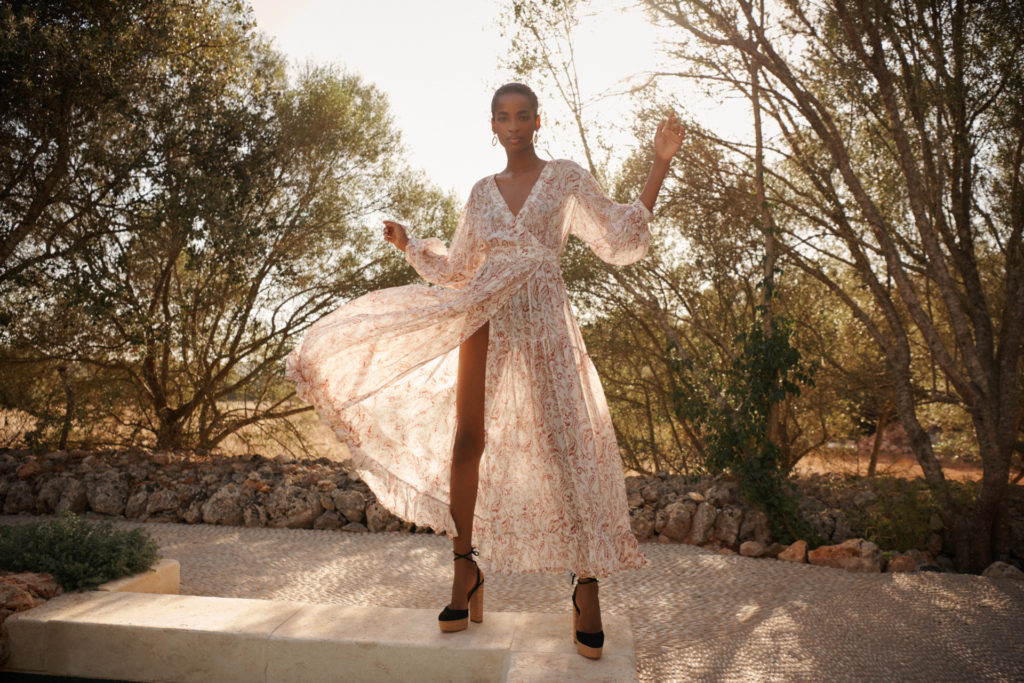
EVARAE
EVARAE was founded in 2016 by Georgia Thompson with a mission to make swimwear more sustainable, championing a ‘buy less, buy better’ philosophy. Swimwear and activewear is created using ECONYL, a regenerative nylon made from waste plastic found in the ocean (it’s also infinitely recyclable). Ready-to-wear, on the other hand, is made with organic silk produced using solar and wind energy or Lyocell produced by environmentally responsible processes. EVARAE also plants a tree for every order received to offset its carbon emissions, uses biodegradable packaging and has a free repair and recycle initiative for old, unwanted swimwear.
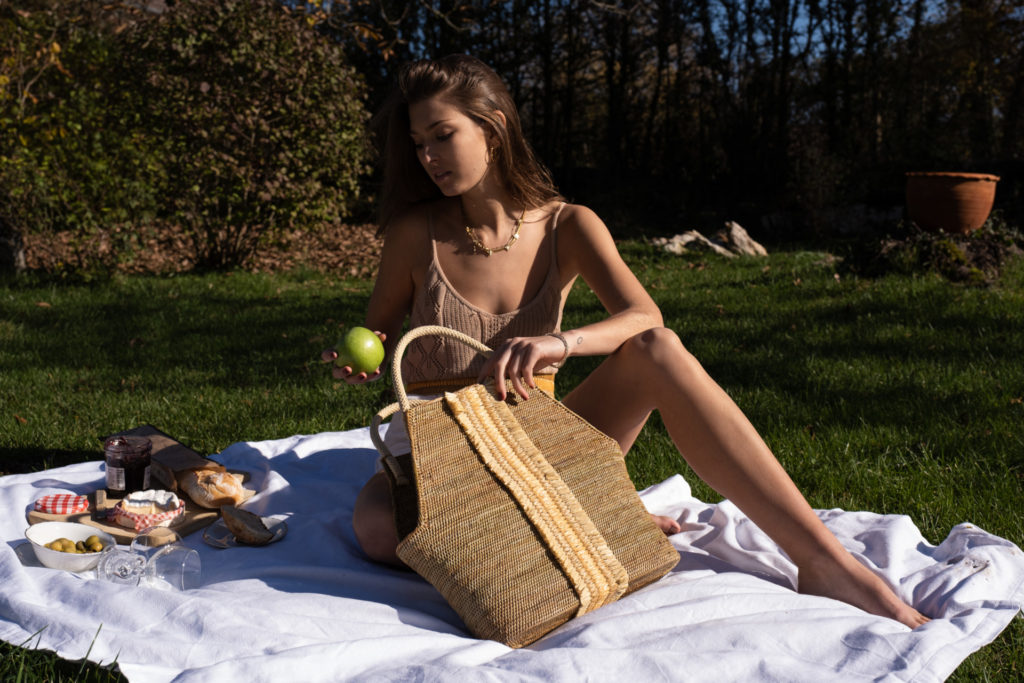
STELAR
British brand STELAR seeks to revive and promote traditional artisan techniques within the international marketplace. Working with artisans in Bali, the brand introduces modern designs to generational craftsmanship – creating a long-term positive impact and sustainable livelihoods within these communities. STELAR’s ethos is ‘buy less, buy better’, using materials sourced locally in Bali (supporting homegrown industries) and ensuring that there is a minimal human and environmental impact. The brand’s collection of basket bags are also made from bamboo and atta grass, grown on the artisans’ own land and entirely regenerative. They are finished with cotton canvas linings, recycled alloy hardware and interchangeable straps made from sailing rope and jacquard.
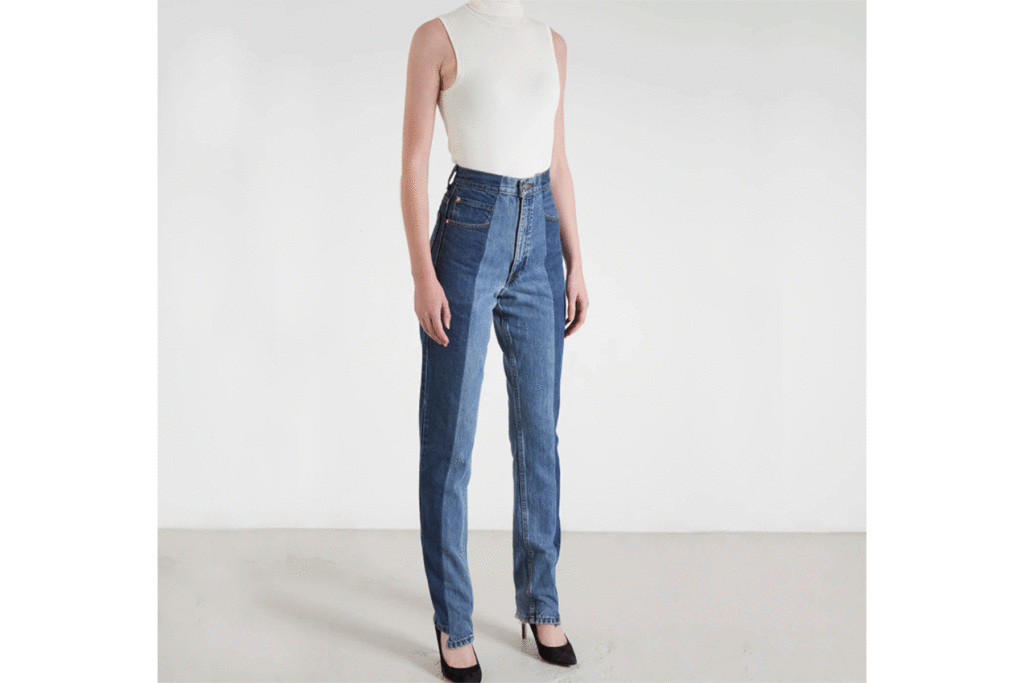
E.L.V. Denim
If you’re on the hunt for pieces with history, look no further than London-based E.L.V. Denim. By sourcing denim from vintage warehouses around the UK, this brand ensures it’s sustainable from start to finish. Jeans are washed at a local, water saving launderette in East London and couriered back to the studio in an electric car. Even the branded leather patches are made from off-cuts from factory floors. The label’s pieces might be pricey, but they’re cut in classic shapes that will never go out of style.
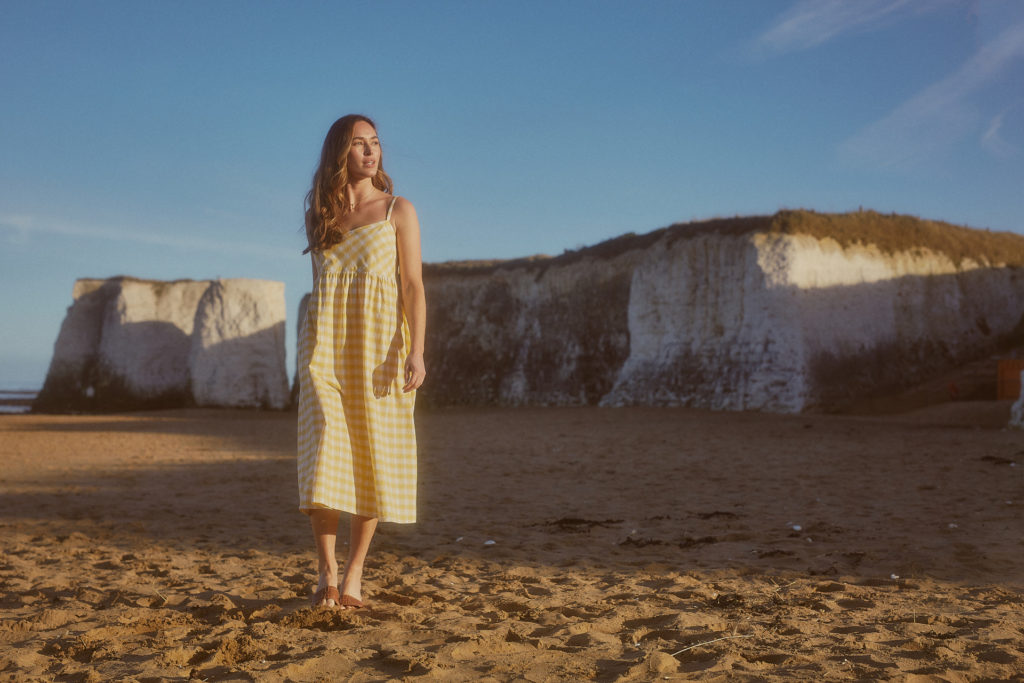
People Tree
Launched in 1991, People Tree is the fashion brand pioneering Fair Trade fashion and responsible sourcing. All collections feature organic cotton, TENCEL™ Lyocell and responsible wool, and are made using traditional artisan skills such as hand weaving, hand knitting, hand embroidery and hand block printing. As of 2022, People Tree has been certified by the Global Organic Textile Standard (GOTS), the Soil Association, Fairtrade International, WFTO and PETA.
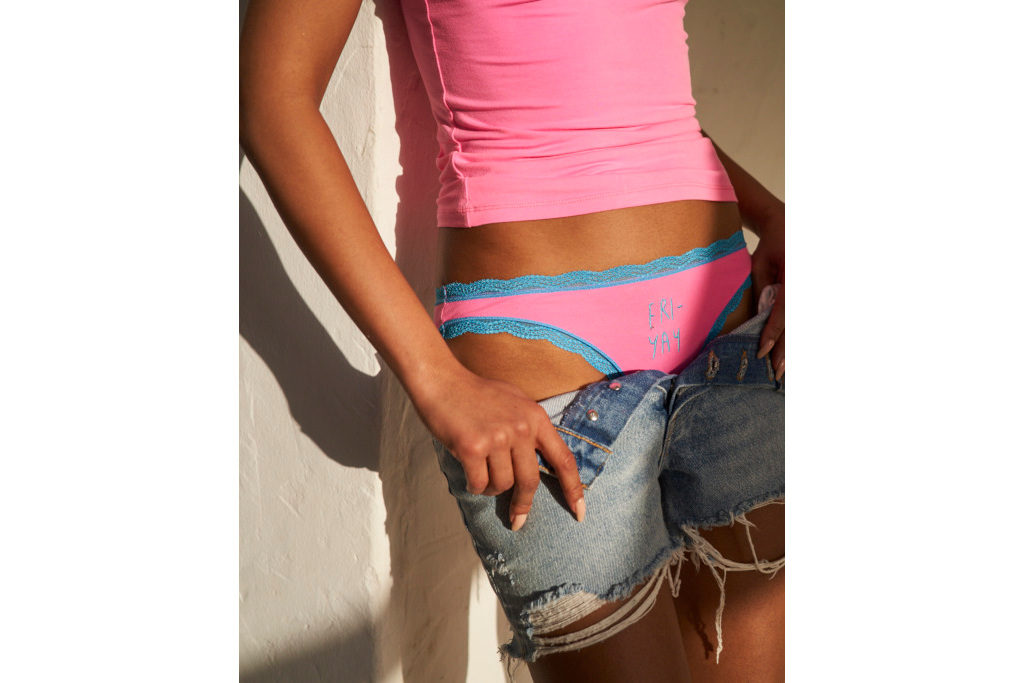
Stripe & Stare
Did you know that only two per cent of underwear is sustainably sourced? B Corp brand Stripe & Stare is here to change that figure with its line of biodegradable knickers, packaging and fair factory practices. Knickers are 95 per cent biodegradable, meaning they can go straight in the compost bin when you’re done with them. Even better, Stripe & Stare’s recently launched B Edit is a world-first collection of completely biodegradable knickers set to biodegrade in 180 days.
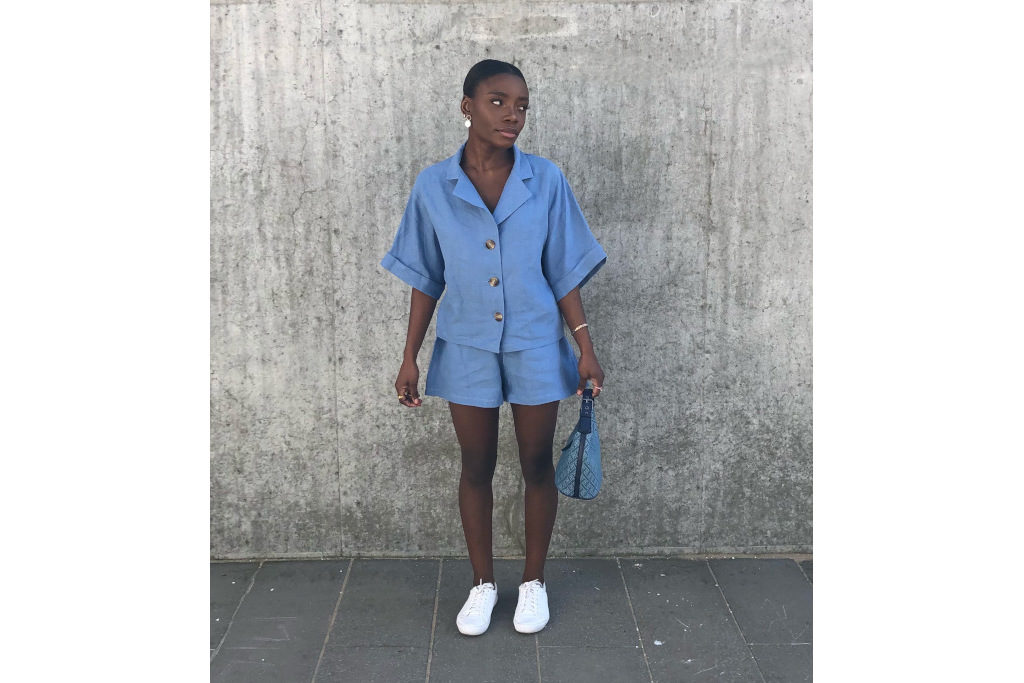
Fanfare Label
Fanfare Label, accredited by organisations OEKO-TEX and GOTS, to name a few, is combatting the huge amount of wastage in the fashion industry, and instead is championing the importance of both reusing and re-purposing. This blue linen suit is stylish, sustainable and perfect for summer.
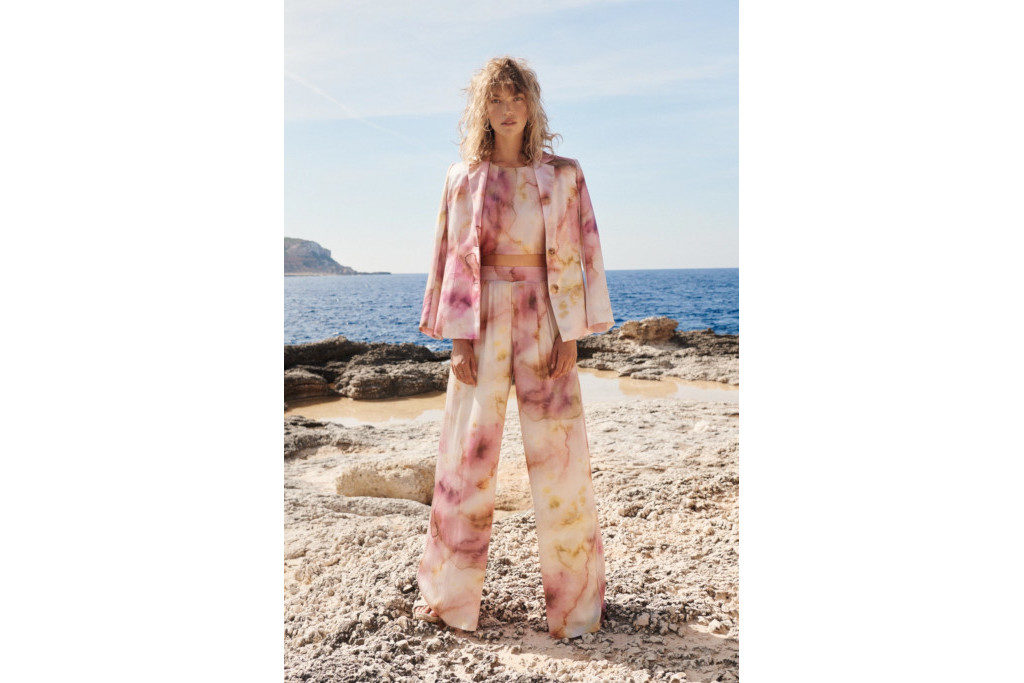
Olistic
One of the younger brands on this list, Olistic was founded back in 2019 with the approach to create fashion while caring for people and planet. Focusing on low-impact consumption, the brand selects natural fibers that are organic-certified, peace silk, wood fibers, virgin wool and leather scraps to make its products and offers a circular economy where you can send back your old Olistic clothes (rather than send them to landfill). Olistic is also on a mission to reduce its water and electricity consumption, and currently offsets all of its carbon emissions related to the transport and delivery of its collections. The brand has quickly drawn the attention of big names like Arizona Muse, so it’s no doubt that Olistic will continue to make a splash on the green global stage.
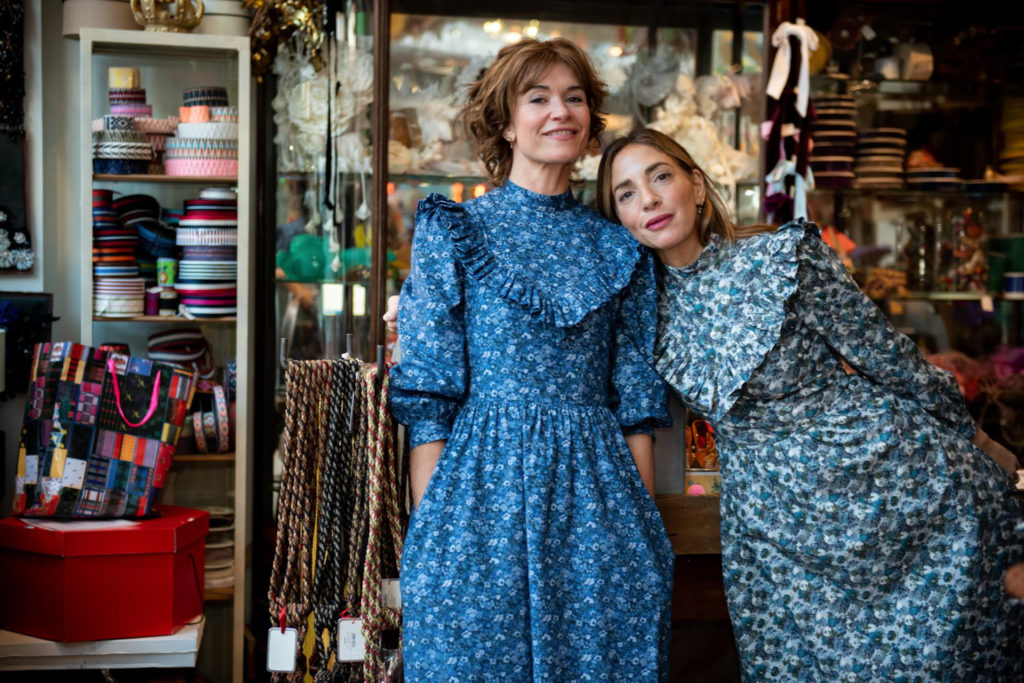
O Pioneers
Set up by Clara Francis and Tania Hindmarch in 2019, O Pioneers is a slow fashion brand specialising in elegant, Victoriana-style dresses. The brand uses heritage Liberty fabrics (as well as end of line and deadstock fabrics where possible) to make limited edition and one-off ‘forever pieces’, maintaining low stock levels to avoid excess and encourage its community to buy less and better. O Pioneers also sources local seamstresses, craftswomen, patchworkers and knitters to make its garments, reducing the overall mileage of the supply chain and supporting a network of women in the industry.
 Marcus Loke, Unsplash
Marcus Loke, UnsplashComhla
Founded with the mantra ‘Buy Well, Mend and Extend’, Comhla is a shopping platform that puts ethical brands in the spotlight. Headed up by sustainability consultant Lucie Harrild, the platform gets to know the brands they’d like to work with – paying close attention to how each business is run, with emphasis on beauty, responsibility and community – before listing on Comhla’s website. Items are listed within the categories of Buy Well, Mend and Extend, with profile pages for each brand so you can get to know them for yourself.
Featured image: Stella McCartney

